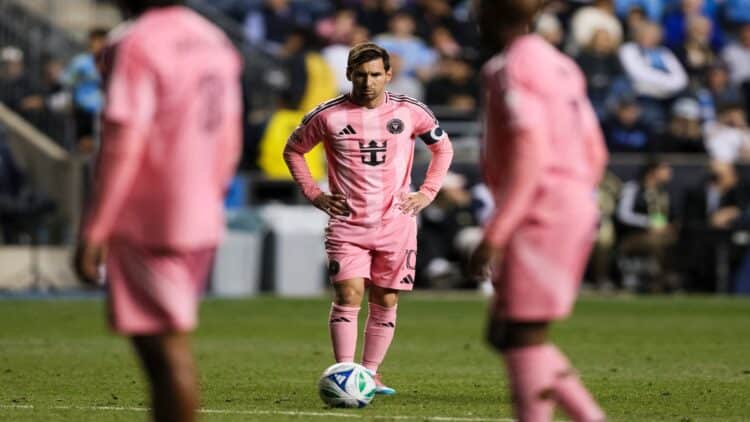The 2025 FIFA Club World Cup may have been a flash in the pan. Football fans and Fate had other ideas for FIFA. Led by veteran patriarchs like international sensations Lionel Messi, the ticket sales have been so dismal that FIFA has reduced prices in a desperate attempt to pack the stadiums in a farewell sweep. Its proudest club honor is to be taken away, and the stakes are huge for the future of the sport.
New Club World Cup: Scales of more ambitions for FIFA’s new tournament
FIFA’s bigger 32-nation tournament was envisioned to be more profitable and exciting, with games being played at 12 US venues and a $1 billion cash pool. Clubs would receive $9.55 million, while the winning side would win $40 million. Ginormous checks and world stars weren’t, however, sufficient to attract the ticket purchasers.
The first match of the tournament between Inter Miami and Al Ahly was supposed to draw a lot of interest. Less than two weeks before the game started, most of the seats at Hard Rock Stadium were still available. The price of tickets at FIFA went from $349 in December to $55 in June, revealing how much the organization is worried.
“When I see some of the United States stadiums filling itself up when some of the teams are visiting to play some friendly games, exhibition games, then I am not afraid at all to fill a stadium when teams visit to play a World Cup, play for, you know, something, something real.” — Gianni Infantino, FIFA President (The Mirror)
While others, such as Real Madrid games, are still expensive, others have been relatively affordable. FIFA was banking on Messi to equate to sell-outs; however, his celebrity is not yet quite as widespread as that required to ensure even that. The longer fixture calendar, more inflated opening-day tickets, and packed summer sports schedule all could be contributing factors.
The backlash: How FIFA’s ticketing woes impact the future of the Club World Cup
The sponsors are weighing the advantages and disadvantages of the new format, more games but not exclusivity. FIFA loses a lot if the appeal of the Club World Cup loses its magnetism, if the grounds become half-empty because the payment to the competing clubs increases.
The budget bid of FIFA is a giveaway that optics and mood are more than anything that the fraternity cares about. The choice can sell out the stadiums to capacity but raises questions marks on the sustainability of the larger tournament in the long term.
If even Messi cannot assure a sell-out, then what can such an edition possibly deliver?
“We’re introducing enormous numbers of newly successful clubs globally to the world with this 11 cities United States-hosted tournament to them. Normally, we’re seeking ginormous attendances throughout the tournament with this first edition — a tournament that will grow edition-by-edition.” — FIFA report to The Athletic (Yahoo Sports).
The ticket price fiasco has further infuriated fan clubs and club officials about the cost and availability of viewing the best-of-the-best soccer games. They think that FIFA’s original price point wasn’t equitable to what America’s viewers will pay or can afford to pay, or in comparison to what competitive value in viewership it’s attempting to purchase.
The 2025 Club World Cup ticket scandal is an eye-opener to everyone, showing that nothing can be done by all the best and brightest minds of stars. It is time now for FIFA to turn a deaf ear to people and come back. For football, plain common sense alone can make football magic greater than money and stars. Finally, the 2025 Club World Cup can be an eye-opener to awaken the organizers from their dreams and prioritize fan experience and access as the top priority over profit in the future.


